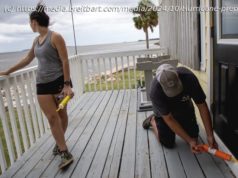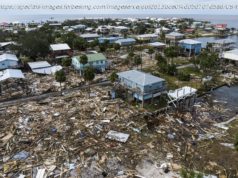Russia monitored poisoned spy’s daughter’s emails, British intelligence says
LONDON — Russia monitored emails for at least five years of the daughter of a Russian former spy who was poisoned in England last month, a British intelligence official said in a newly-released document.
Mark Sedwill, the United Kingdom’s national security adviser, made the allegation in a letter to NATO Secretary General Jens Stoltenberg. The British government made the letter public Friday.
Sergei Skripal, 66, and his daughter Yulia, 33, were found unresponsive on a bench in Salisbury, southern England, on March 4. Britain says they were poisoned with the nerve agent Novichok and blames Russia. The Kremlin denies any involvement.
“I would like to share with you and Allies further information regarding our assessment that it is highly likely that the Russian state was responsible for the Salisbury attack,” Sedwill wrote in the letter.
“Only Russia has the technical means, operational experience and the motive…. There is no plausible alternative explanation.”
More: UK’s Boris Johnson says only Russia had ‘means and motive’ to carry out nerve agent attack
More: Yulia Skripal discharged from Salisbury hospital after poisoning
Sedwill said Britain had information that Russian cyber specialists monitored Yulia’s emails since at least 2013.
A “combination of credible open-source reporting and intelligence” shows that the Soviet Union developed new “fourth generation” nerve agents known as Novichoks in the 1980s, the letter said.
“Within the last decade, Russia has produced and stockpiled small quantities of Novichoks,” Sedwill added.
He said the highest concentration of Novichok was found on Sergei Skripal’s front door.
Russia has “a proven record of conducting state-sponsored assassination,” Sedwill wrote, citing as an example the 2006 poisoning death in London of Alexander Litvinenko, a former Russian spy. The poison, polonium-210, is thought to have been given to him in a cup of tea at a hotel in central London. A British public inquiry concluded in 2016 that Russian President Vladimir Putin probably approved the killing. Russia denied any involvement in Litvinenko’s death.
Sergei Skripal, a former Russian military intelligence officer, was jailed in 2004 for selling state secrets to Britain. He was released as part of a spy swap and moved to Salisbury in 2010.
“It is highly likely that the Russian intelligence services view at least some of its defectors as legitimate targets for defection,” Sedwill wrote.
Dozens of countries and NATO have expelled more than 150 Russian diplomats over the poisoning, and Russia has retaliated by expelling a number of foreign envoys.
Yulia was discharged from Salisbury District Hospital this week while her father remains in the hospital.
The Organisation for the Prohibition of Chemical Weapons (OPCW) — the international chemical watchdog — confirmed on Thursday that the Skripals were poisoned with a toxic chemical of “high purity.”






